Hunger crisis in South Sudan means many can’t afford to care about coronavirus
Coronavirus has wreaked havoc across the world, but in some countries, residents can’t even afford to care about getting sick.
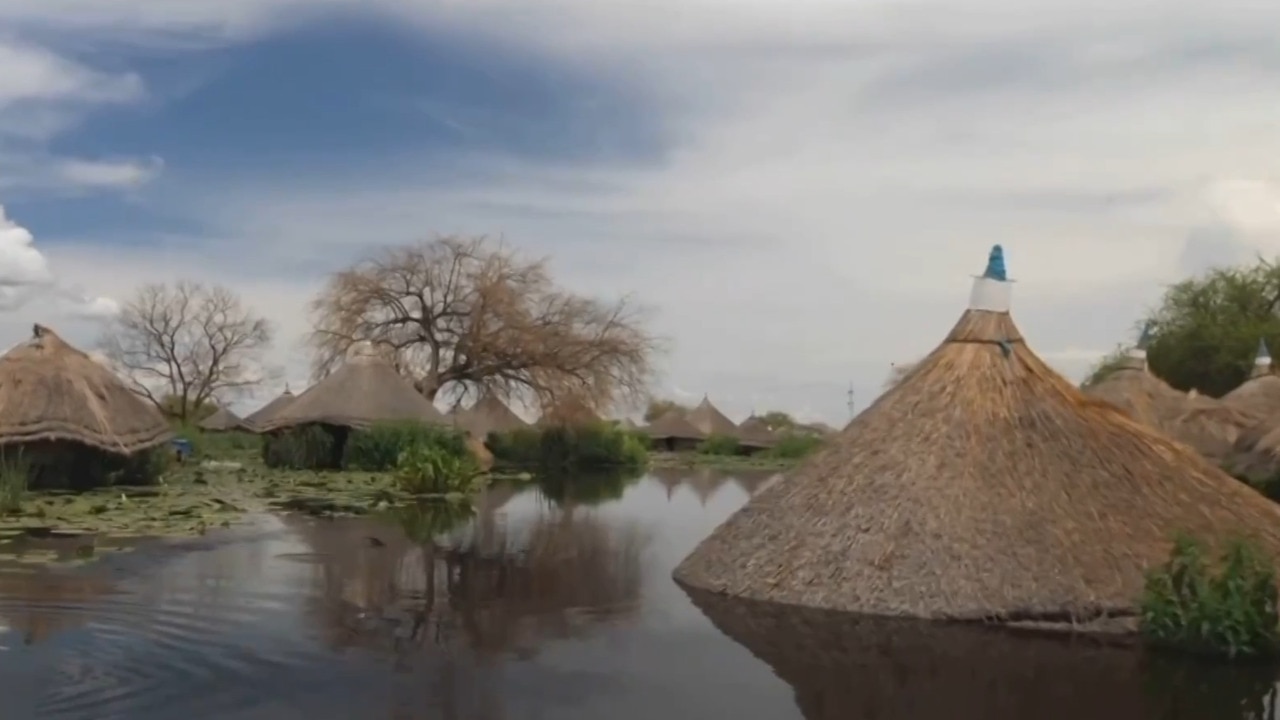
When your country relies on food being shipped in from other countries, a global pandemic can have serious consequences.
In the region of Pibor, South Sudan, coronavirus has fuelled a growing food crisis but many of those in the area don’t even have the luxury of caring about the disease.
Even before the pandemic, the world’s youngest nation, was forced to ship in food from overseas but since Covid-19 appeared, Australian Richard Sandison told news.com.au that prices have gone up by 30 to 40 per cent, something that has made food unaffordable for many.
“Some of the families I spoke to were just surviving on wild fruits and leaves,” Mr Sandison said.
“They have access to some food – we were distributing to about 160,000 people – but it wasn’t enough, so people are resorting to cutting down three meals a day to just one.
“There are children in marketplaces trying to sell small packs of biscuits to help out in gaining an income for family.”
This year a lack of funding forced the United Nations’ World Food Programme (WFP) to slash its monthly assistance for refugees by up to 30 per cent in South Sudan.
It cut the size of its food rations – made up of cereals, pulses, vegetable oil and salt – down to a 50 per cent portion, providing 1050 kilocalories in one portion instead of 2100 kilocalories.
“Talking to a number of local people, they’ve never seen anything like this before,” Mr Sandison said.
“It is the worst hunger crisis since independence.
“It’s also a protection crisis for women and girls, who are bearing the brunt of the food crisis.”
RELATED: World faces ‘hunger pandemic’
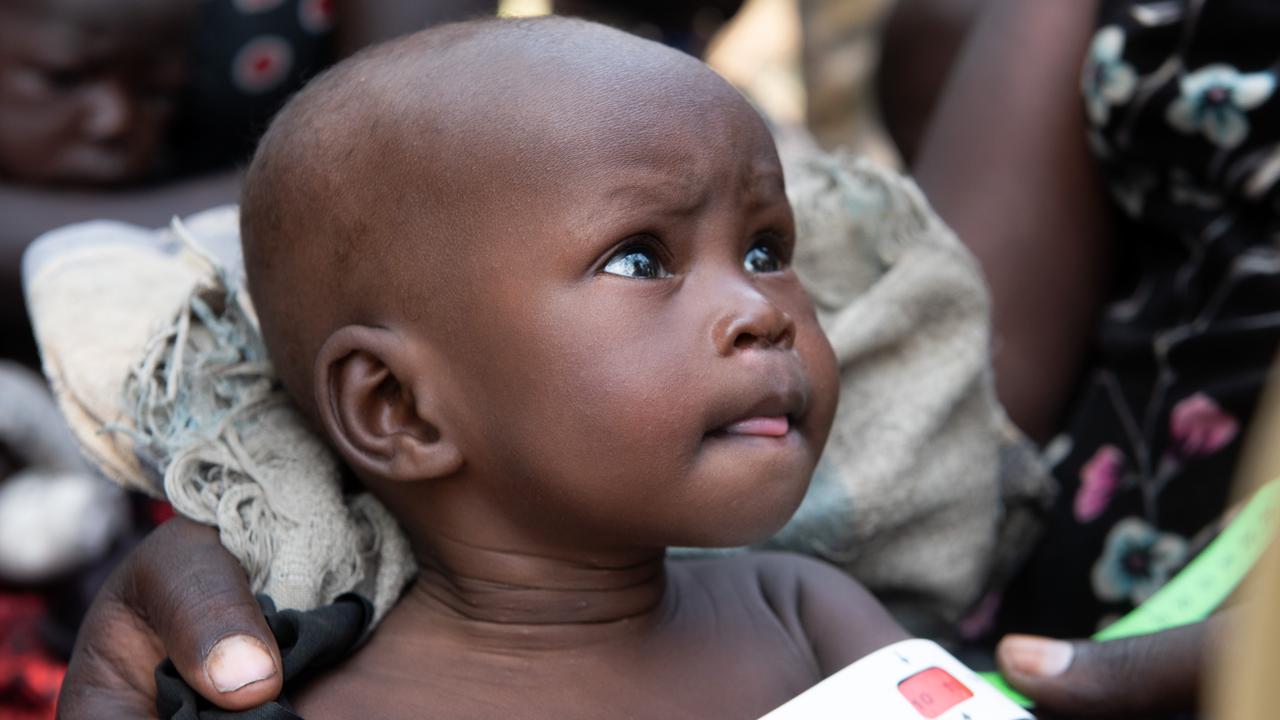
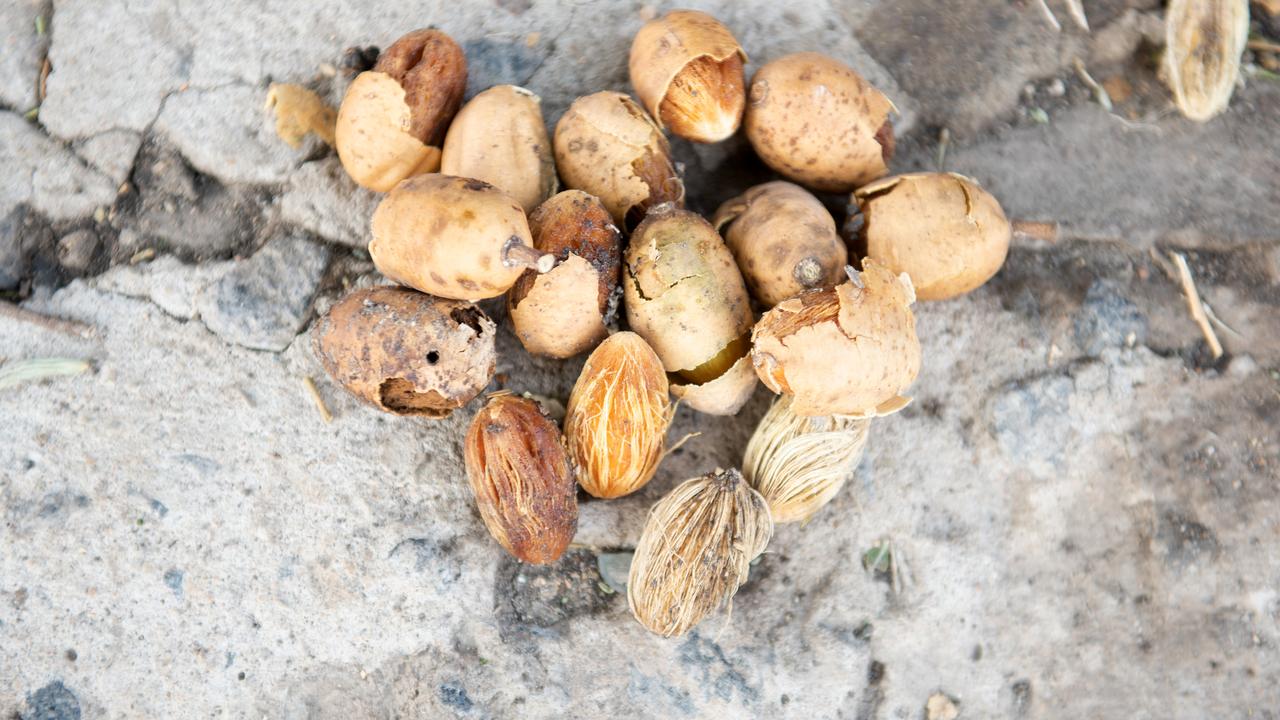
Food crisis affects situation for women and girls
Mr Sandison, who is now based in Uganda, is the region’s refugee program manager for Plan International and was in Pibor for almost three months from the beginning of March, helping to distribute much-needed supplies.
He was particularly concerned about what women and children were being forced to do to survive.
“I noticed when schools were open that the enrolment of girls was very low,” he said.
“I’ve heard incidences of families resorting to child marriage to try and gain some income, by accepting their daughter would be married off at a young age.”
He said there had also been significant increases in sexual and gender-based violence amid lockdowns.
“Because of Covid, schools are closed which makes girls at higher risk of exploitation, child labour and abuses,” he said.
“So it’s not only a hunger crisis but a protection crisis for women and girls.”
Sadly, amid the food crisis, Covid is a secondary concern for many people.
Mr Sandison said one woman had told him: “I’ve only got enough money to either buy food for my children, or a bar of soap.
“These are the choices people have to make at this time.”
RELATED: United Nations warns 2021 could be catastrophic
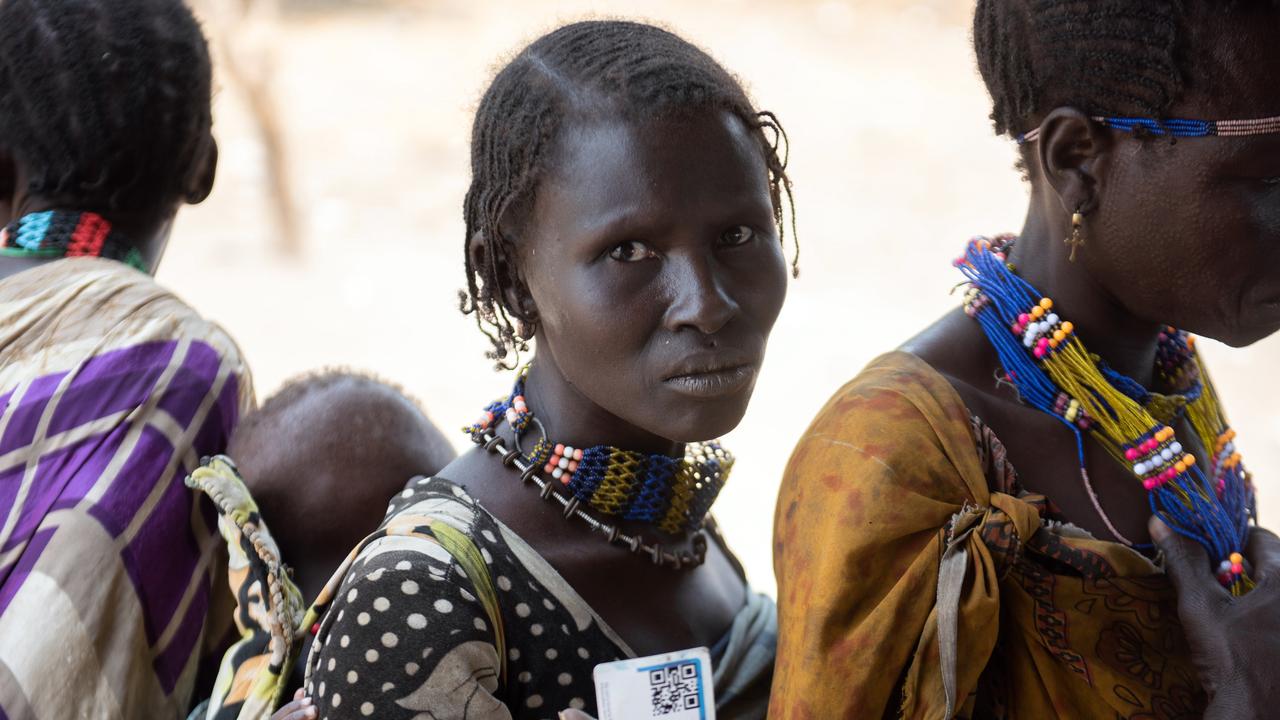
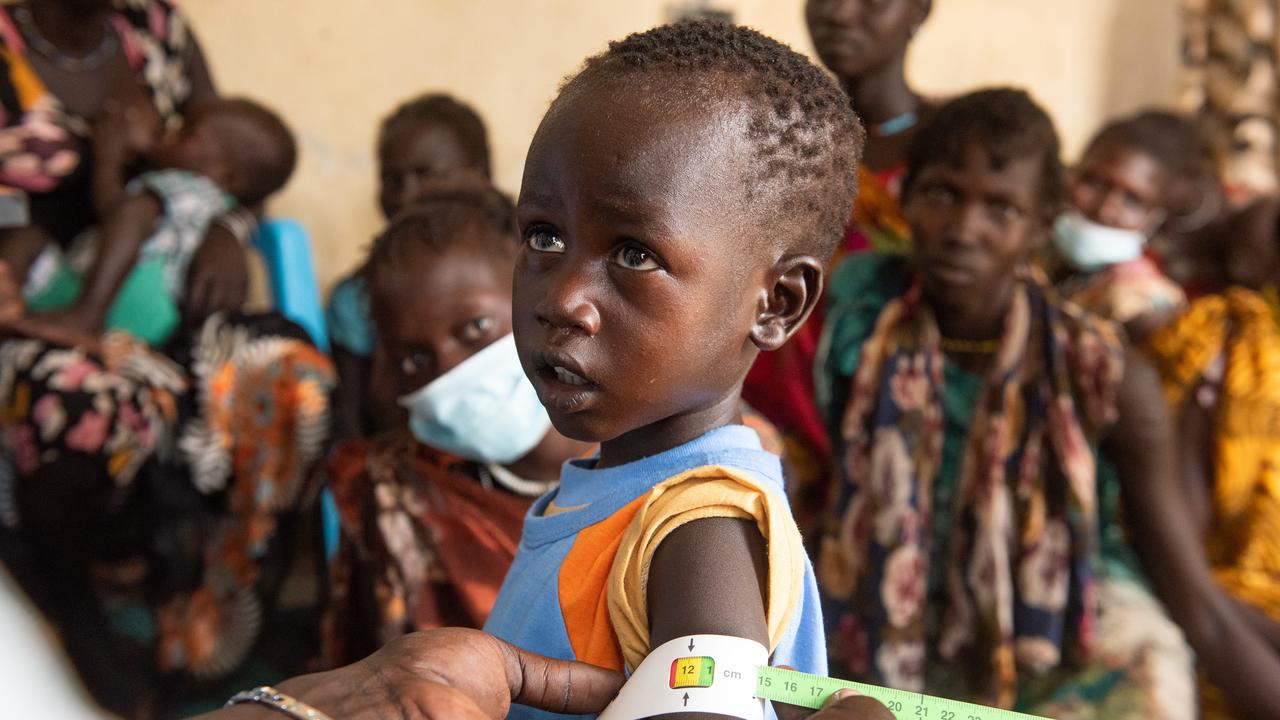
Catastrophic levels of hunger
Plan International is urgently scaling up is operations in Pibor and surrounding areas, which is one of the worst hit regions in South Sudan, in partnership with the WFP.
However, about 350,000 people in Ethiopia’s northern Tigray region are also experiencing catastrophic levels of hunger – the largest number recorded anywhere in the world since the disastrous famine in Somalia in 2011, when a quarter of a million people died.
Plan International believes more than five million people are in need of humanitarian assistance and this is predicted to increase in the coming months.
Tens of thousands are believed to be enduring famine-like conditions in South Sudan.
“Our message is, don’t forget South Sudan. The newest country in the world needs help and support. It’s not just another famine in Africa,” Mr Sandison said.
He also wants to see high income countries such as the United States, Canada and some countries in Europe, which have ordered many more Covid-19 vaccine doses than they need, to share these with South Sudan.
He said just 60,000 doses had been administered in the country of 11 million over the past three months.
“At this rate it will take at least 90 years for the whole population to become vaccinated.”
RELATED: African country burns AstraZeneca vaccines

The United Nations’ report on The State of Food Security and Nutrition in the World
estimated that 10 per cent of the world’s population was now undernourished.
More than half (418 million) live in Asia and Africa.
The pandemic also appears to have set back ambitions to get hunger down to zero by 2030, with some estimating the target will be missed by a margin of 600 million people, 30 million higher than expected before the crisis.
Aid budgets cut amid country’s crisis
The crisis in South Sudan, which is celebrating 10 years of independence this year, is being fuelled by a number of different factors.
Mr Sandison said Covid-19 had made food more expensive but flooding and ongoing conflict in the country in the past year had also disrupted farming activities.
The climate crisis is also thought to be playing a part, with changing rainfall patterns leading to droughts, floods and locust plagues across Africa.
It’s estimated about 4.2 million people in South Sudan have been forced to flee their homes, with about 7.2 million people living with crisis levels of hunger or worse.
Cuts to aid budgets, including from Australia, were also having an impact.
RELATED: Australia’s ‘appalling’ foreign aid cut
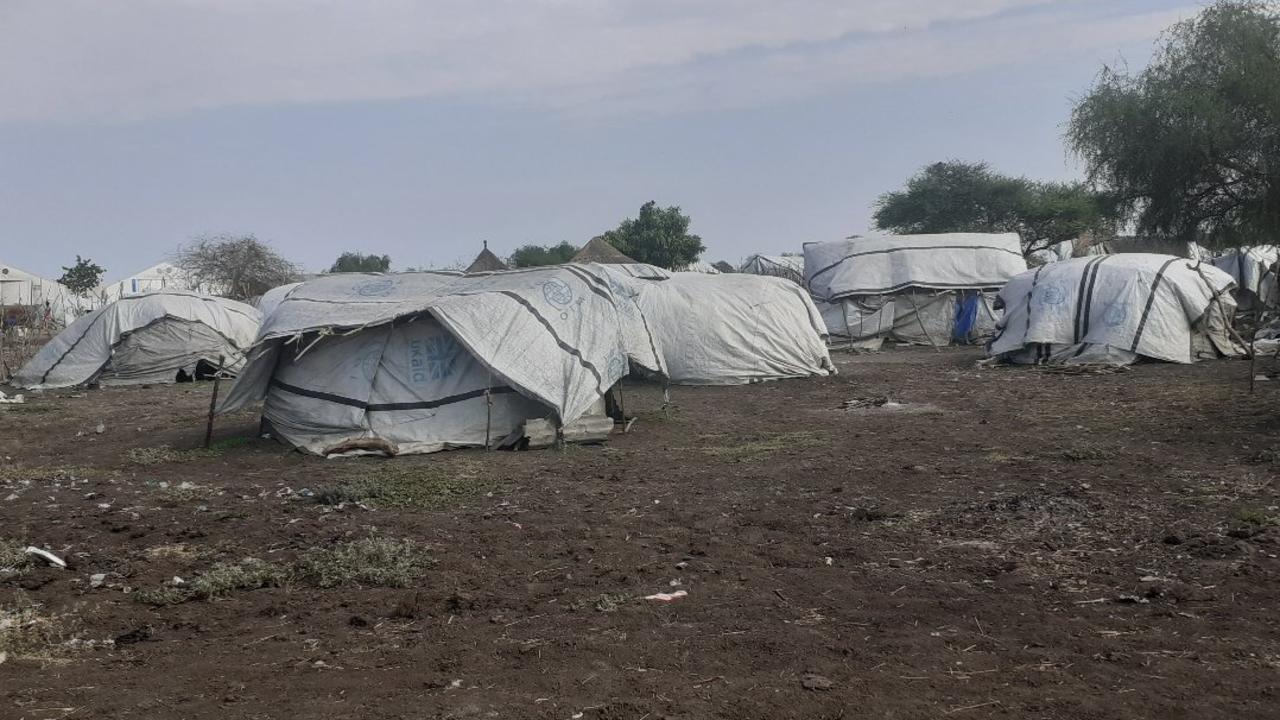
Total foreign aid from official donors around the world rose last year thanks to extra spending directed towards helping developing countries grappling with the Covid-19 crisis.
But many countries have since reduced their contributions.
Australia cut its humanitarian funding to Sub-Saharan Africa by 3.4 per cent in 2021/22 and 48 per cent the year before, according to the Australian Council for International Development.
The council called for a $150 million package for famine prevention this year but it was not included in the 2021/22 Budget.
Mr Sandison said more long-term development assistance was needed, not just short-term aid.
“It’s a young country and it needs the world’s support,” he said.
“It’s not just for three or six months; we need to invest more in developing capacity, infrastructure, and the health and education systems.”
RELATED: Fury over vaccine’s trashed reputation
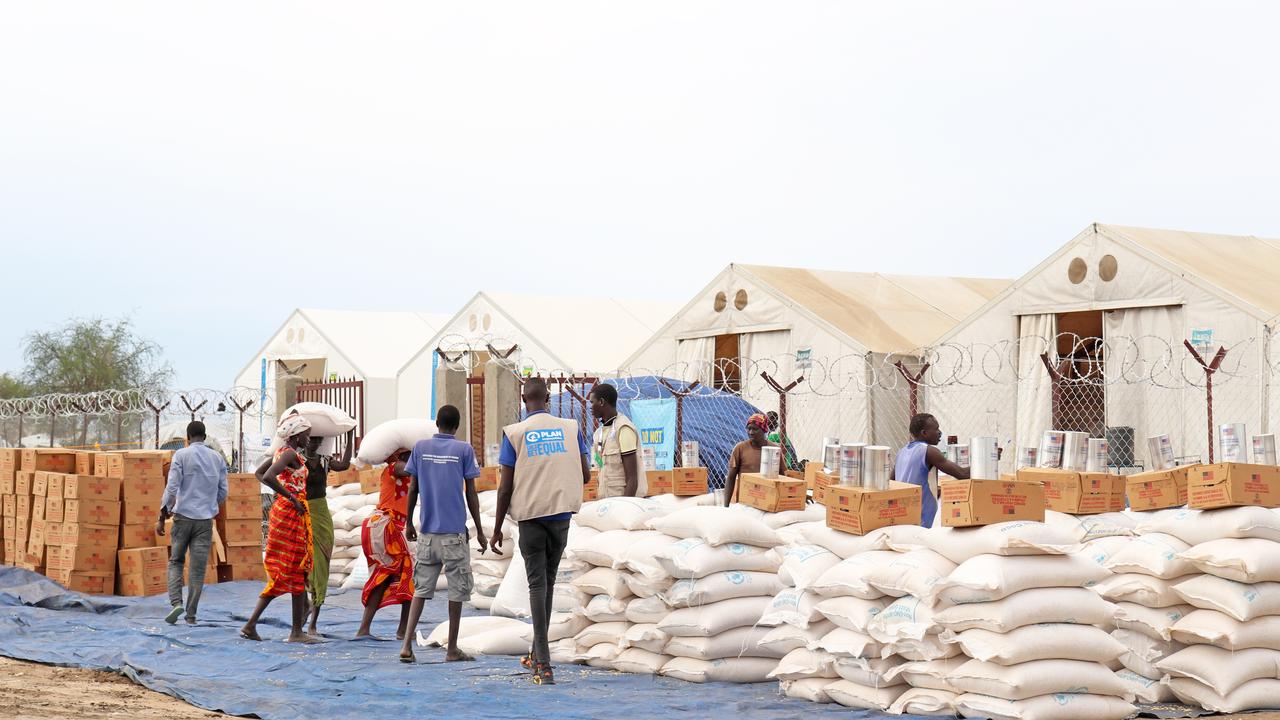
Political issues add to problems
Resolution of the country’s political problems is also crucial.
South Sudan has struggled with war, famine and chronic political and economic crisis since celebrating its hard-fought independence from Sudan 10 years ago in July.
Recently it has suffered due to the conflict between President Salva Kiir and his rival Riek Machar, with about 400,000 people dying before a ceasefire and power-sharing deal was agreed to in 2018.
More recently there have calls for a peaceful public uprising to topple the current coalition government, which has been described as a “a bankrupt political system”, and to end the chronic political and economic crisis.
The People’s Coalition for Civil Action is calling for the resignation of both Mr Kiir and Mr Machar, who has reportedly been removed as his party’s leader.
“The coalition is asking all the people of South Sudan to prepare for mass civil disobedience, strikes, sit-ins, protests and popular uprising to bring about change,” it said.
– with AFP




